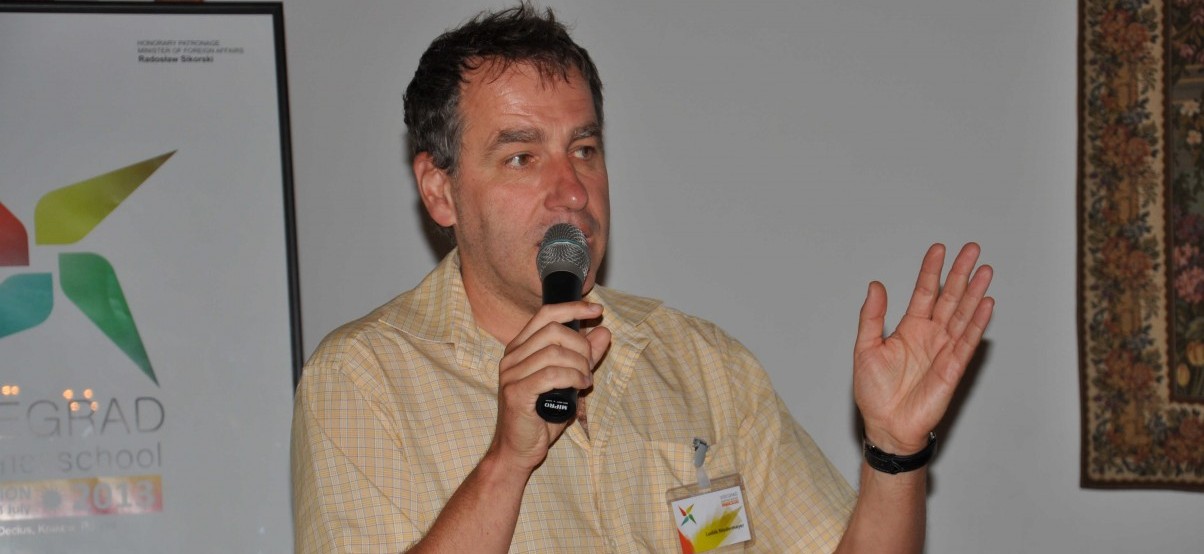
“That’s going to be a very concrete day”. Indeed, Danuta Glondys’ morning prophecy has been fulfilled. One shall acknowledge – the Director Villa Decius Association never wastes her words.
Speaking of which – the language of economy we speak in Europe is no longer relevant or even compatible with the (post)crisis reality. That could be one of the conclusions made after listening to a brilliant lecture of Luděk Niedermayer which opened the fifth day of the 12. Visegrad Summer School. Unfortunately it’s not only a matter of discourse but about the direction that the Visegrad countries should choose in the dynamically evolving Europe?
Luděk Niedermayer did not give a simple answer because there is no such a thing. Conversely, he presented all complicated predicaments that the current Europe – including our region – suffers from. However, we tend to term the current troubles and worries as “the crisis”, the truth is that “every country has its own fight”. Therefore it’s really difficult to draw some common points between surprisingly well-performing “unorthodox” Hungary weighed down by the huge public debt and the Czech Republic’s economy that does not grow despite the balanced budget. Moreover, besides the abovementioned differences, there’re some structural distinctions coming from the outgoing economical transition and finally – the fact that Slovakia has already joined the Economic and Monetary Union while the other countries remain outside and still are not sure for how long.
Nevertheless, according to Luděk Niedermayer, the potential is totally unused. He argues that during the breaking moment of the European order, the Central and European Europe should consider some common strategy to avoid the risks caused by the possible future institutional architecture of the Union catalysed by the crisis.
After the coffee break, Magda Vášáryová discussed the energy security. As she pointed out in the early beginning of the speech, the energy mix – so to speak – energy landscape is quickly evolving at the moment. This arouses certain problems and challenges. On one hand there is the shale gas – usually seen as a chance to reshape the peripheral nature of the region. On the other, there is Russia who tries to remain a top player on the energy market in Europe. Magda Vášáryová urged the participants to remain very careful in analysing the topic. As long that is a huge business in which many interests clashes - the media coverage is subject to external influences.
“This lecture fulfilled all my expectations” – Svetlana Cocul from Moldova stated. Nevertheless, she’s really concerned how regular people may participate in the strategic energy decisions which elites are not capable to make. She likes the idea of a broad consensus on energy security but she does not really think that it could be reached by the current politicians who are rather interested in short than long-term solutions. Conversely, Annamária Kiss from Hungary was a bit disappointed with Magda Vášáryová’s presentation. She expected something more concrete and felt that Vášáryová presented more political than expert point of view. Also Anastasija Panasevic was not satisfied. She got the impression that Magda Vášáryová avoided to answer her question on the European Union's Third Energy Package.
That was a very intensive, fruitful and also exhausting week. Luckily, during the weekend the participants of the 12. Visegrad Summer School are going to rest a bit travelling around the city of Kraków and Małopolska region.
Ziemowit Jóźwik












